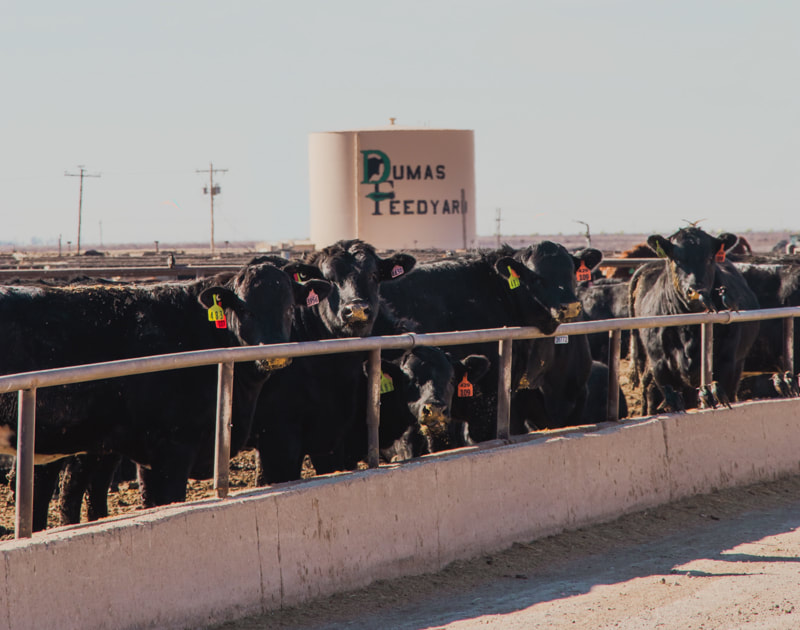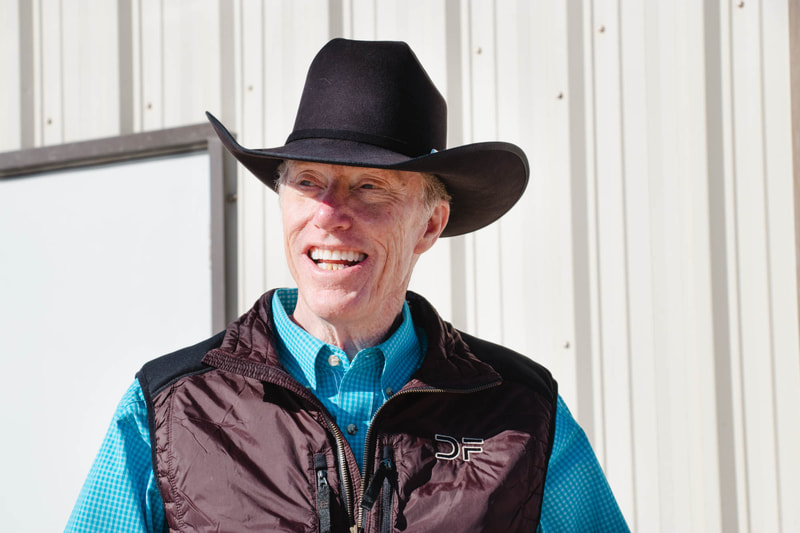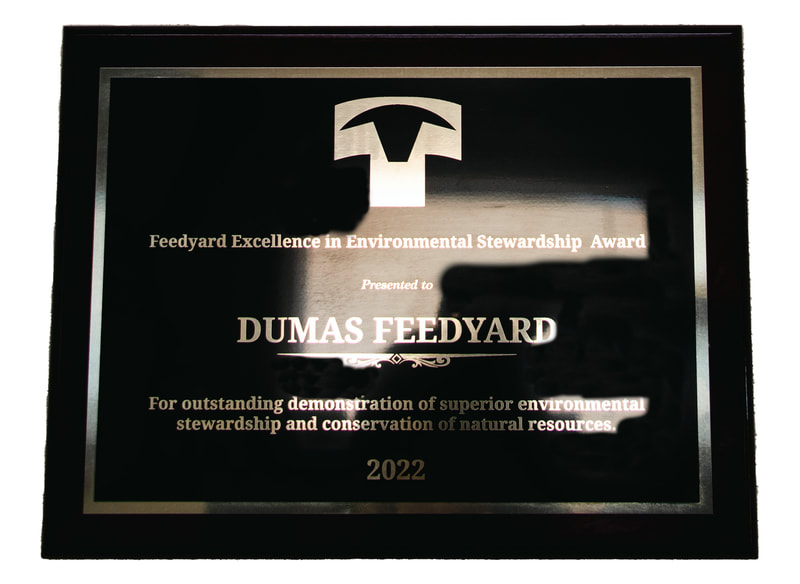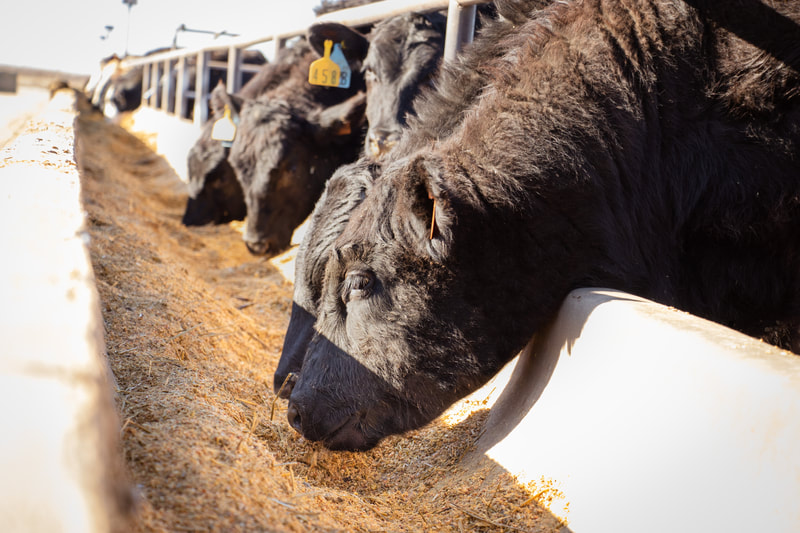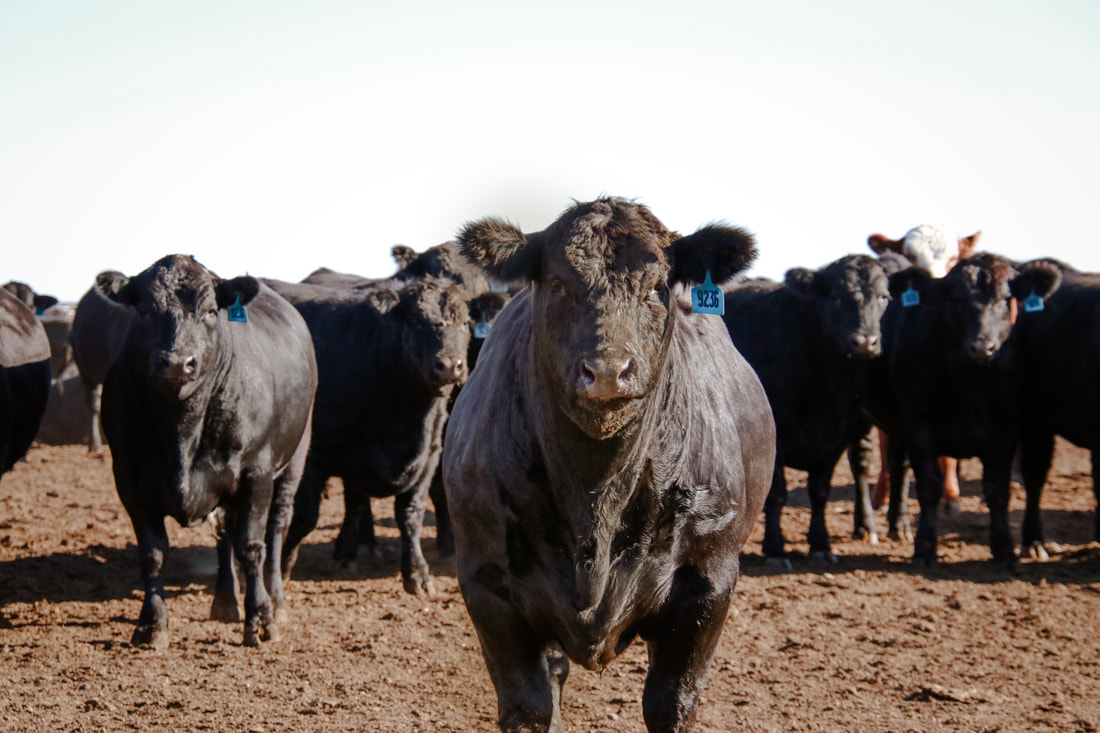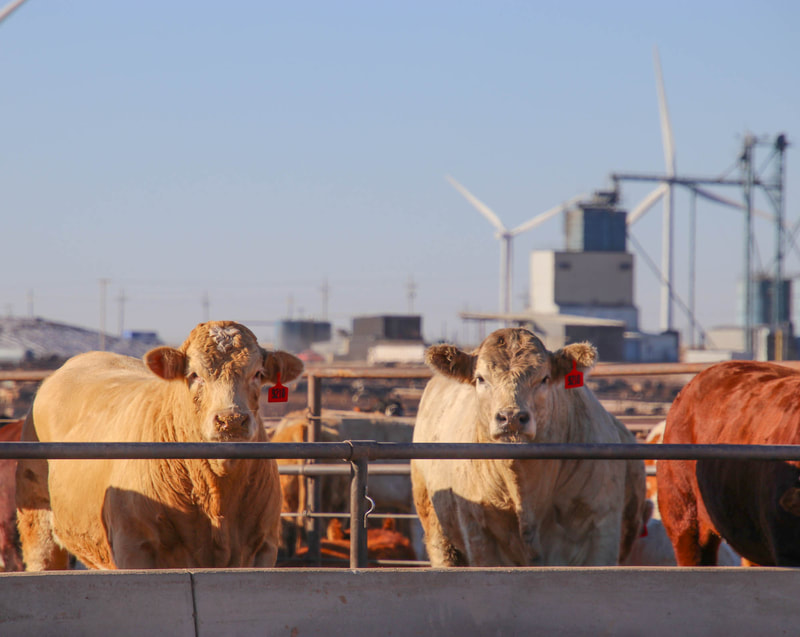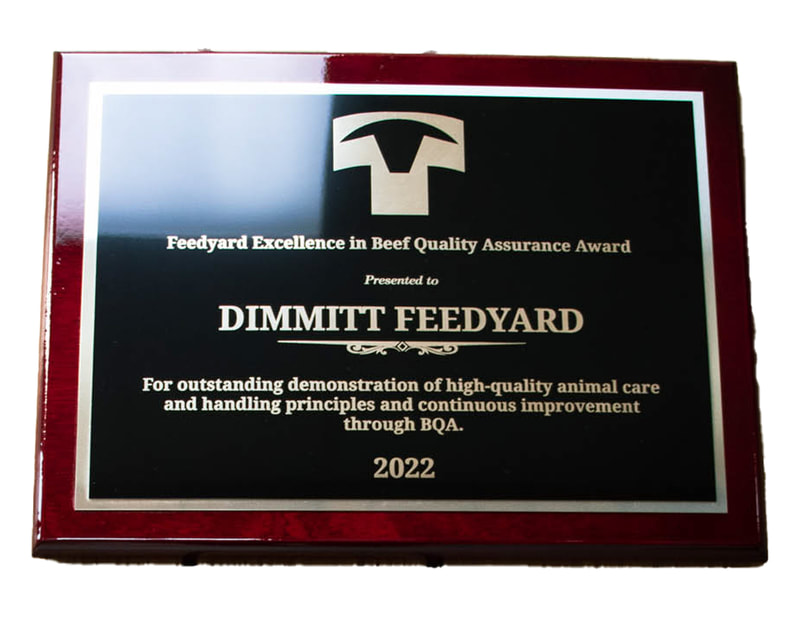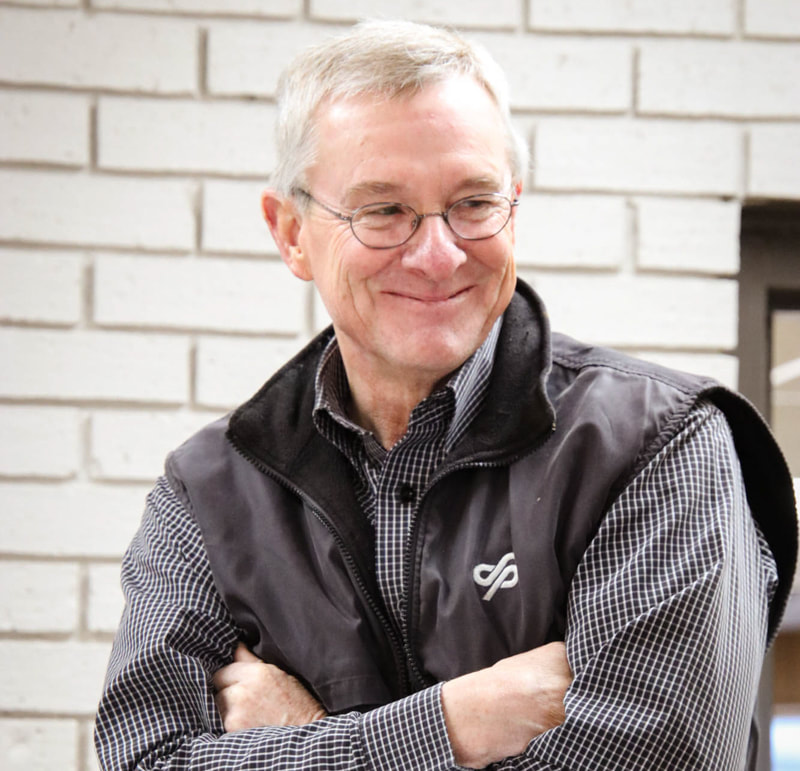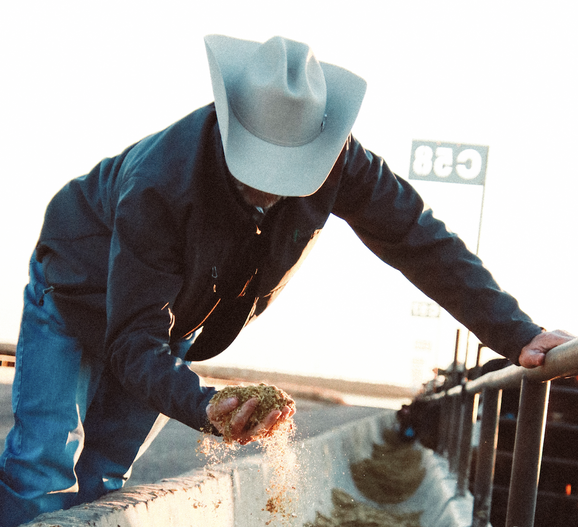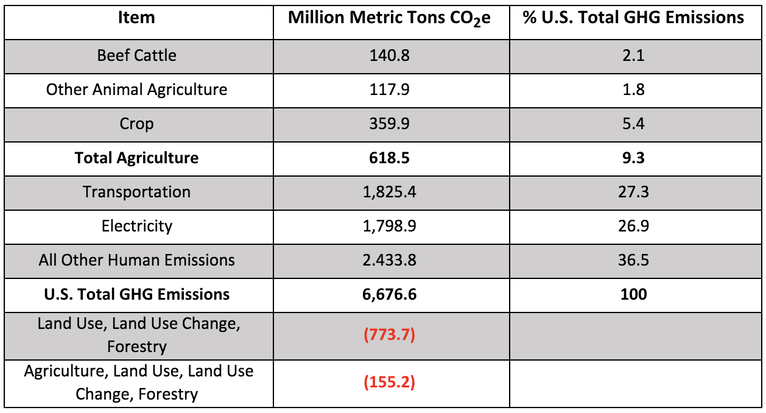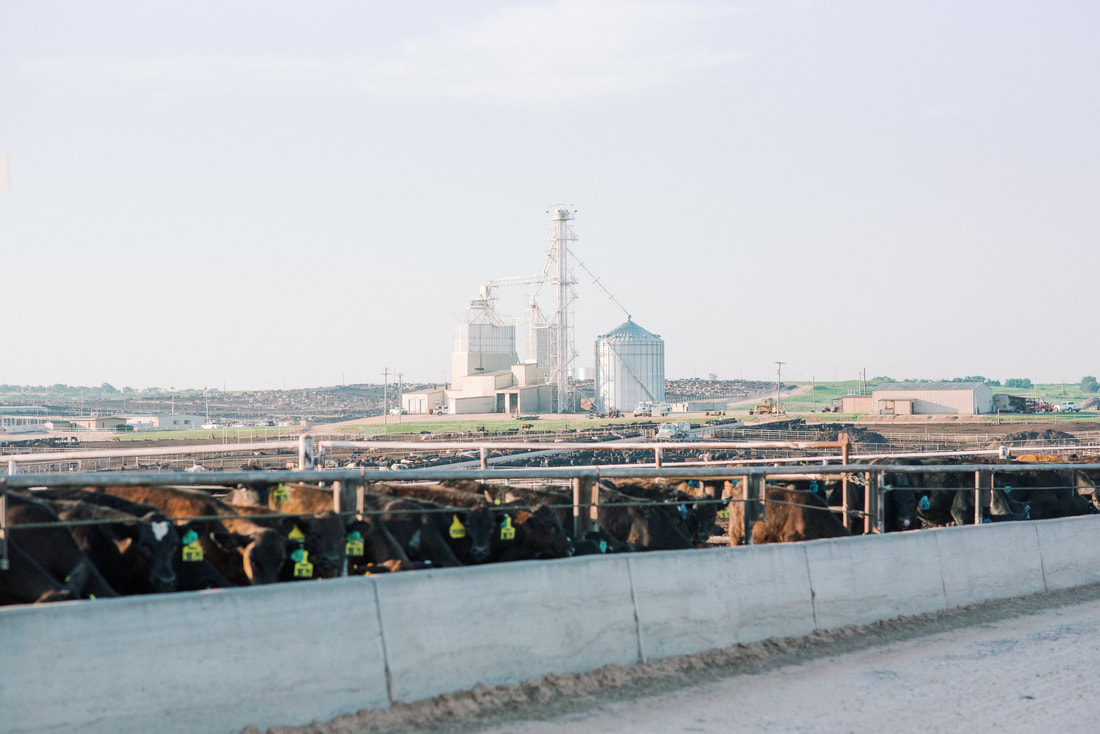|
By Madeleine Bezner TCFA Excellence in Environmental Stewardship and Beef Quality Assurance Award Recipients
Dimmitt Feedyard, owned by Dean Cluck Feedyard Inc. and managed by Ben Fort, received the 2022 Excellence in Beef Quality Assurance (BQA) Award for its outstanding commitment to beef quality assurance. Dimmitt Feedyard is located west of Dimmitt, Texas, in the Texas panhandle. The operation is a 50,000 head capacity feedyard that feeds both company and customer cattle.
BQA begins day one of every new hire at Dimmitt Feedyard as training is integrated into the orientation process with a video presentation conducted in both English and Spanish. “The purpose and content are to communicate a comprehensive approach that is an expectation of each and every employee at Dimmitt Feedyard,” Ben Fort said. “Everyone takes this responsibility personally, and we take the outcomes personal as well.” Fort explains that the people at Dimmitt Feedyard and their daily commitment to enhance consumer confidence in the beef industry is what promotes the company’s success when it comes to best BQA practices and success. “Dimmitt Feedyard management and owners believe an excellent BQA program is intense on the front of all personnel and productions system,” Fort said. “It’s also a continual improvement effort for us.” Transparency is a key component when any new technology or best management practices are implemented. Dimmitt Feedyard strives for “zero corrective actions needed” after any in-house audit. Everything from feed manufacturing and delivery to pen maintenance and manure removal is documented by employees using technology. Additionally, accurate and accessible health records are maintained daily and are the responsibility of trained accounting clerks and trained cattle processing and doctoring crews. As part of Dimmitt Feedyard’s quest to cultivate a strong work environment, supervisors meet weekly on Mondays throughout the year to communicate each department’s production and BQA plans for the upcoming week, along with reporting opportunities for improvement to existing management practices. Visit Dimmitt Feedyard on any given day and you’ll find the employees are the foundation of its BQA program. “Our success is based upon their hard work and dedication,” Fort said. “The employees are committed and take these standards personal and strive to live above and beyond the standard.” Beyond the employees at Dimmitt Feedyard, the management team hosts TCFA Feedyard Technician students and students from WTAMU’s Feedyard Management class throughout the year. “These audiences allow for BQA practices to be communicated as the standard or foundation for all production decisions,” Fort said. “Dimmitt Feedyard has taken the approach to focus on communicating these BQA principles to the next generation.” Cattle feeding is a multi-generational, resilient industry focused on responsible stewardship of both the land and the cattle that occupy it. TCFA congratulates Dumas Feedyard and Dimmitt Feedyard on their continued dedication to producing sustainable, wholesome beef for consumers worldwide.
0 Comments
Raising beef responsibly is a top priority for cattle feeders which is why they utilize practices that are good for the environment. Improved efficiency means a lower carbon footprint and fewer natural resources used for every pound of beef.
Agriculture, land use, land use change and forestry combined in the U.S. are a net sink of CO2 equivalent emissions, meaning they remove more metric tons of CO2 from the atmosphere than they emit.
Other Cattle & Climate Facts
By: Carmen Fenton, TCFA Director of Communications
As the global population continues to grow, so will our need for a sustainable, nutritious, affordable supply of protein. Beef provides more nutrients in fewer calories than many other food choices. For example, a 3 oz. serving of beef contributes over 50% of the daily value of protein and is also an excellent source of zinc, vitamins B6 and B12, niacin, phosphorus and a good source of iron in about 170 calories. To get that same amount of protein you’d need to eat six tablespoons of peanut butter (564 calories) or three cups of quinoa (666 calories). But it’s not just the role beef plays in human nutrition that is important. Indeed, modern beef production is also good for the planet. The way beef is produced in the U.S. is incredibly efficient and should be looked to as an example for the rest of the world. In fact, U.S. beef has one of the lowest carbon footprints, 10 to 50 times lower than some nations. What is continuously distorted and misrepresented by anti-meat activists is the environmental impact of cattle in the U.S. According to the Environmental Protection Agency, Greenhouse gas (GHG) emissions from cattle only account for 2%. This number is low. And while there’s always room for improvement, one must recognize that all food production, and frankly all human activity, results in some sort of emissions. But not all food has the same nutrient packed, staying power as beef. It’s also important to know that cattle are ruminants, meaning they are specially equipped with four stomach compartments, the largest being the rumen. Why is this important? Because the rumen microbes give cattle the unique ability to upgrade plants that have little to no nutritional value to you and me into high-quality protein and micronutrients that humans need. Nowhere is this biological phenomenon on grander display than at the feedyard. Feedyard nutritionists curate precise rations for cattle during specific times of their lives using plant and plant byproducts that aren’t edible by humans. This allows for optimal growth and comfort using the least amount of natural resources possible. There is not a single vegan or vegetarian in the world I’ve convinced to eat beef based on these words alone. And that’s not my intent. The great thing about America is that we, the consumer, have choices. Know this: regardless of what foods you choose to nourish your body, the way cattlemen produce beef in the United States is good. It’s good for the economy; it’s good for your health; and it’s good for the environment. Cattle are not the problem, but part of the solution. Let’s celebrate that. 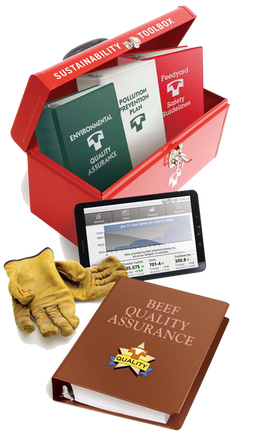
The U.S. Roundtable for Sustainable Beef (USRSB), a full beef stakeholder initiative focused on continuous improvement, officially recognized the Texas Cattle Feeders Association (TCFA) suite of feedyard services and programs as aligning with the U.S. Beef Industry Sustainability Framework.
“TCFA feedyards are the envy of the world in terms of efficiently converting grains and by-products into protein,” said Levi Berry, feedyard general manager and TCFA Chairman. “Over the last several decades, as an industry, we have consistently produced more beef with less cattle, used fewer overall inputs, implemented environmental management practices and strived to provide a safe workplace for our employees. This is the very definition of sustainability in action. TCFA feedyards have a great story to tell.” TCFA’s suite of feedyard programs consist of three main areas; employee safety, environmental services; and Beef Quality Assurance. The programs and services are implemented in partnership with TCFA feedyard members. In order to be recognized as aligning with the USRSB Framework, TCFA’s programs were required to demonstrate alignment with six key areas:
For example, TCFA feedyard members who utilize TCFA’s environmental services program align with the Framework’s water resources, land resources and air and greenhouse gas emission indicators. TCFA’s program includes environmental training, site audits, and soil, water and manure sampling. Additionally, the environmental services program helps feedyards develop sound Pollution Prevention Plans and Nutrient Management Plans. The programs underwent an evaluation by an independent third-party in order to demonstrate incorporation of U.S. Beef Industry Sustainability Framework criteria. The alignment claim is applicable for three years, at which time TCFA would reapply to keep recognition status. “The USRSB Framework is new, but TCFA members have focused on improvements in these areas for years,” said Berry. “Now, because TCFA’s programs have been recognized, TCFA feedyard members can highlight their efforts in all of these areas under the larger umbrella of sustainability — something consumers want from producers.” For more information on the USRSB Recognition Program, visit www.usrsb.org.  Good news for cattle feeders regarding the 2015 Waters of the United States (WOTUS) rule. On Tuesday, U.S. District Judge George Hanks, of the Southern District of Texas, ruled that the Obama administration failed to adequately notify the public of key working changes in its 2015 rule redefining “Waters of the United States” or WOTUS. The summary judgement sends the rule back to the EPA and the Army Corps of Engineers on grounds that it violated the Administrative Procedure Act (APA) in making changes in the final rule that were not proposed in the preliminary rule. Court rulings across the country have created a patchwork of WOTUS implementation, with the 2015 rule in force in 22 states but blocked in 28. This week’s ruling does not change that, but it does validate what TCFA and NCBA have said all along — that the rule is illegal and must go. “For years TCFA feedyards have dealt with uncertainty regarding Obama’s 2015 WOTUS rule,” said Tom McDonald, 2015 TCFA chairman and leader on TCFA’s work to replace the 2015 rule. “We hope this decision will expedite that process. In the meantime, TCFA will still work with Congress to put an end to the 2015 rule.” |
Categories
All
Archives
June 2024
|
About TCFA |
Get Involved |
|

